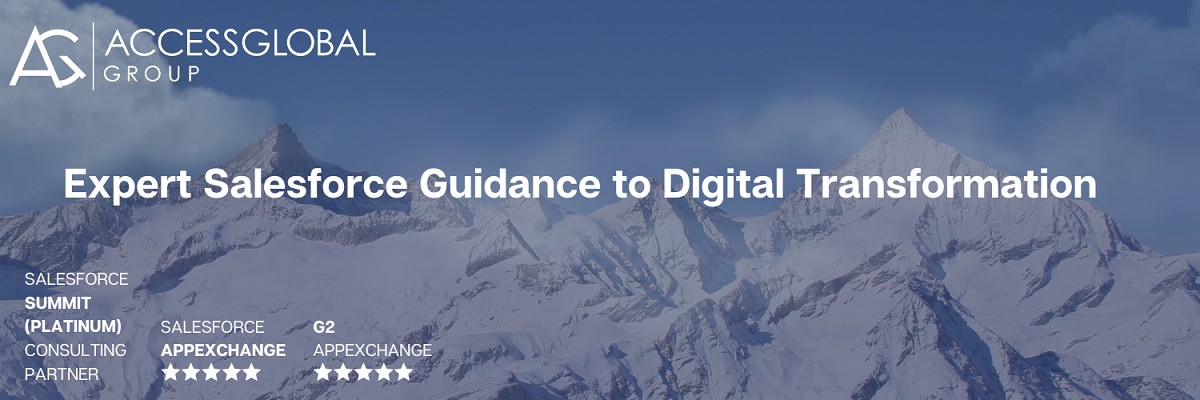The Top 5 Challenges Companies Face When Implementing Salesforce
 Jenna Trott
Jenna Trott
5 min read | MARCH 15, 2023


1. Migrating Data
Imagine this scenario: your company’s valuable data, including customer information, transaction history, and product catalogs, is not compatible with Salesforce’s standards. Suddenly, you’re left with “broken” data fields, incomplete records, and a major headache. One of the primary challenges that companies face when implementing and integrating Salesforce is data migration. Migrating data from legacy systems to Salesforce can be a complex process that requires a deep understanding of data mapping, conversion, and cleansing. As such, companies often struggle with data quality issues, such as duplicate records, missing data, or inconsistent data formats, leading to errors and inconsistencies in Salesforce. Additionally, migrating large volumes of data can be time-consuming and resource-intensive, which can lead to delays and unexpected expenses.
Solution: Fear not! By developing a comprehensive data migration strategy, including data validation and quality management, and partnering with experienced consultants, companies can smoothly migrate to Salesforce and avoid the headache.

2. Bad Data
We’ve stressed just how important data is and there’s nothing quite worse than implementing or integrating Salesforce only to realize that you’ve got a data disaster on your hands. This can result from the following issues:
Improper Data Mapping:
Data mapping is a critical process that ensures the accurate and consistent transfer of data from a source system to Salesforce. Without proper data mapping, companies can experience a range of issues that can impact their overall business processes and success. When data is improperly mapped, it can result in inaccurate data and reporting, which can lead to poor decision-making and lost revenue opportunities.
To achieve effective data mapping, companies must have a deep understanding of the data fields and structures in both the source system and Salesforce. It is crucial to take the time to carefully review and test the data mapping process to ensure that it accurately captures all necessary information and that the data is consistent across systems.
Poor Validation Rules:
Think of validation rules as your personal data quality superhero within Salesforce. These rules act as a safeguard that defines a set of criteria that data must meet before it can be saved in Salesforce. If the entered data doesn’t meet these criteria, the user is given a warning and a request to correct the data. By implementing validation rules, companies can ensure that all necessary fields are filled, or that data is correctly formatted, thereby avoiding common data quality problems such as duplicate records, incomplete information, or irregular data formats. These rules act as a safety net, protecting your business from data errors and empowering you to make better-informed decisions.
Loose User Permissions:
User permissions is your virtual bouncer that keeps unwanted hands off your most important data. With user permissions, companies can tailor access to individual users and teams, granting them the appropriate level of access to carry out their tasks without compromising sensitive information. User permissions also enable companies to maintain data accuracy by ensuring that only authorized users have the ability to modify or delete important data. With user permissions, companies can ensure that their data is in safe hands, giving them peace of mind and the ability to focus on their core business activities.

3. User Adoption
Despite the numerous benefits Salesforce offers, many companies struggle with user adoption. Employees may be hesitant to change their existing workflows, or may not fully understand how to leverage Salesforce’s capabilities. Inadequate training or poor communication about the benefits of Salesforce can also contribute to low adoption rates. These issues can be particularly problematic as low user adoption rates can limit the effectiveness of the platform and prevent companies from realizing its full potential.
Solution: To improve user adoption in Salesforce, companies can invest in comprehensive user training and communication, engage employees in the adoption process, and provide ongoing support and resources

4. Security
While Salesforce offers robust security features, organizations may still face challenges in safeguarding their data and systems. Setting up inadequate authentication and access controls are a common issue, leading to unauthorized access or misuse of sensitive information. Similarly, poorly configured security settings can expose organizations to cyber threats and data breaches. Insufficient training and awareness among employees can further increase security risks, with workers unknowingly exposing sensitive data or falling prey to phishing scams.
Solution: To tackle these challenges, companies should prioritize security during Salesforce implementation, regularly assess and update security measures, and offer comprehensive security training and awareness programs for all employees.

5. Customization Challenges
Customization is a powerful tool that allows companies to tailor Salesforce to their specific needs and workflows. However, there are several challenges associated with customization that organizations may face. One such challenge is the lack of technical expertise within the organization, which can lead to delays, errors, or suboptimal customizations that do not fully address the organization’s requirements. Conversely, poorly defined requirements can result in over-customization, leading to increased complexity and the potential for errors and maintenance issues.
Solution: To overcome customization challenges in Salesforce, companies should evaluate their in-house expertise and invest in training or additional support if needed. Well-defined requirements and stakeholder involvement are essential to avoid over-customization and ensure that customizations meet the organization’s needs.

Salesforce is internationally recognized for its ability to revolutionize the way businesses operate while increasing revenue. However, integrating it can be a complex process that requires careful planning and execution. Mistakes can be costly and not only negatively impact the success of the implementation, but the entire business as well. This is where a Salesforce consultant can provide invaluable assistance. Their expertise, guidance, and support can help businesses navigate the implementation process with ease. Additionally, many Salesforce consulting firms offer managed services. More than a buzzword, managed services can help with a range of tasks, such as customizing Salesforce to meet your specific business needs, securely migrating your data, and providing ongoing maintenance and support to ensure optimal performance post project launch. By taking advantage of managed services, businesses can maximize the potential of Salesforce and achieve growth and success.
What are you waiting for?
These days, leveraging technology like Salesforce is crucial for companies to stay ahead and meet the evolving demands of their clients. With a wide range of features and benefits like, seamless integration with other systems, customizable dashboards and reports, and automated workflows, Salesforce has become an indispensable tool among companies across verticals. Access Global Group’s team of certified experts know Salesforce inside and out. This means that when they come to you, no stone is left unturned and they’re able to solve any conflict with agility and accuracy. Regardless of where you are in the digital transformation journey, Access Global Group will provide customized solutions that align with your goals so you can focus on not only reaching them, but going far beyond what you thought was possible. Our unique project methodology of customer centricity allows us to provide intuitive solutions that are acutely catered to your organization’s needs. And as your premier Summit Salesforce Partners and Consulting Services/Managed Services experts with over 15 years in the industry, we’ll use our technical expertise to meet your unique needs and generate real change within your organization.
Don’t take our word for it – hear what our customers have to say on G2 and the Salesforce AppExchange!
Get the latest Salesforce news
Subscribe to get the latest Salesforce blogs, guides, industry reports, events, and all things Salesforce related!
FREE Salesforce Assessment!
To demonstrate confidence in our ability as Salesforce Partners, we’re offering you the a FREE Salesforce Organizational Assessment.
Let's Get Started on Your Salesforce Project!
Salesforce
PLATINUM
PARTNER
Salesforce
APPEXCHANGE
G2
USER REVIEWS

